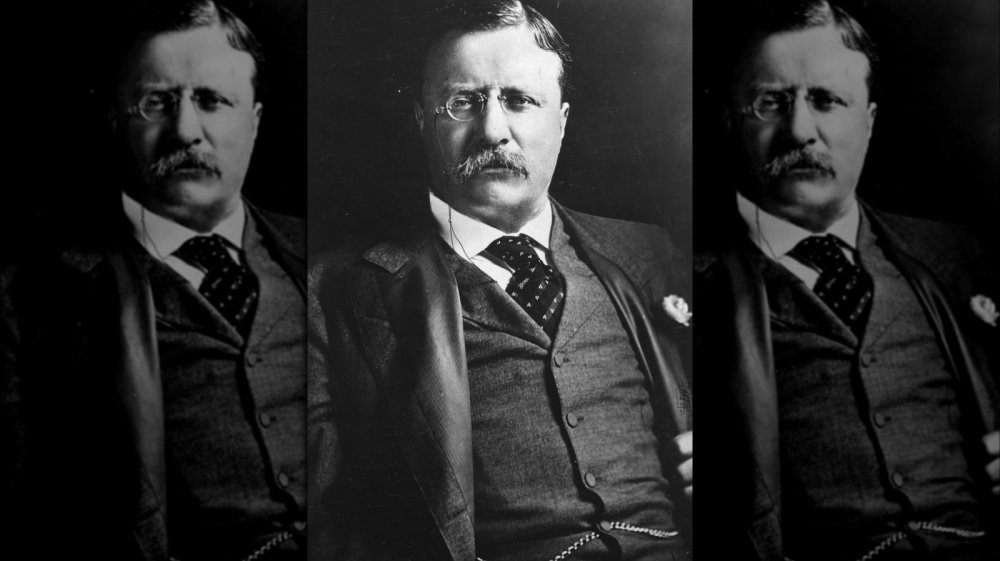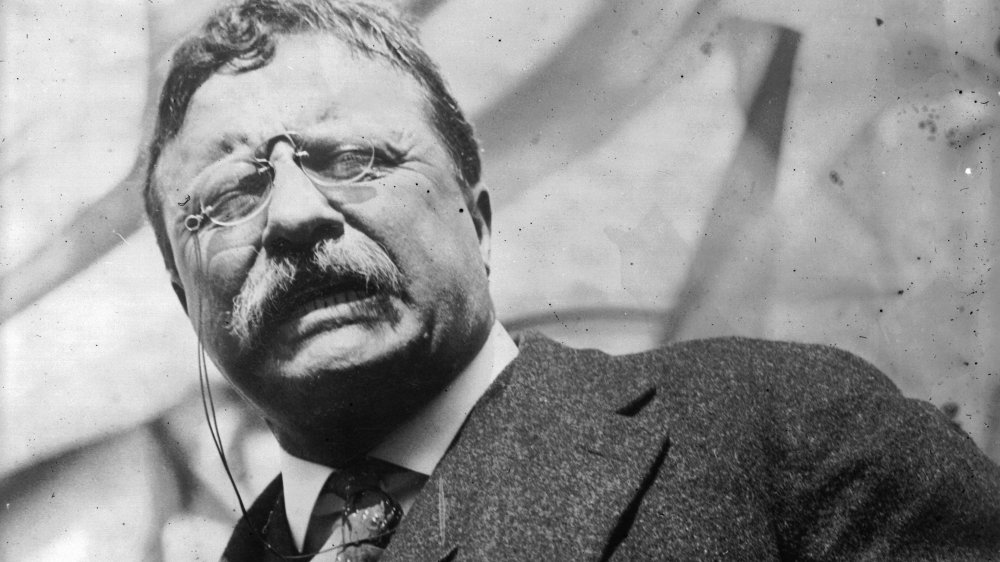The Dark Truth About Teddy Roosevelt
The 26th president of the United States has a familiar face. Theodore Roosevelt, or "Teddy," as he was often lovingly called, can be spotted looming down on the tourists from his seat on the monumental landmark that is now Mount Rushmore. In his time as U.S. president from 1901-1909, according to Britannica, Roosevelt secured several major accomplishments — the construction of the Panama Canal, the creation of the Forest Service, and others. He's one of only four U.S. presidents to be awarded the Nobel Peace Prize — his for mediating an end to the Russo-Japanese War. Roosevelt was thought of as extremely progressive, to the point he formed his own Progressive Party. It didn't help him get elected again in 1912, but it was worth a shot. For as forward-thinking as old Teddy was, he had some seriously dark, backward views.
In terms of what we identify today as racist attitudes, we have Roosevelt's own words to rely upon. He was a huge proponent for American expansion and imperialism, as made evident when he pushed for "civilizing" the Philippines, taken by force during the Philippine-American War — a war that left nearly 200,000 Philippine citizens dead in the name of colonization, relates the State Department's Office of the Historian.
We can't say for certain how he felt about each race, but we know he had major problems with the Indigenous American peoples.
He was terribly racist
"I don't go so far as to think that the only good Indian is the dead Indian, but I believe nine out of every ten are, and I shouldn't like to inquire too closely into the case of the tenth," Roosevelt said in an 1886 speech in New York, quoted in Hermann Hagedorn's book Roosevelt in the Badlands.
Another dark element that will taint your view of this president is his view on eugenics — the discredited science of improving the human race by encouraging reproduction by individuals who have certain desirable traits, and excluding those with less desirable traits. (The Nazis were fans, especially in terms of forced sterilizations.) While he was in office, the eugenics movement was beginning to take off in the United States, and it was disgusting. As History tells us, Roosevelt supported eugenics — "selective breeding" for more "desirable" traits in human beings, and forced sterilizations those "less desirable."
The groups Roosevelt spoke out against most — when it came to restricting procreation, at least — were criminals and people with cognitive disabilities: "I wish very much that the wrong people could be prevented entirely from breeding," as he's quoted by New Statesman. " ... Criminals should be sterilized and feeble-minded persons forbidden to leave offspring behind them." He even went so far as to create the U.S. government's "Heredity Commission," an attempt to preserve America's genetic heritage.

